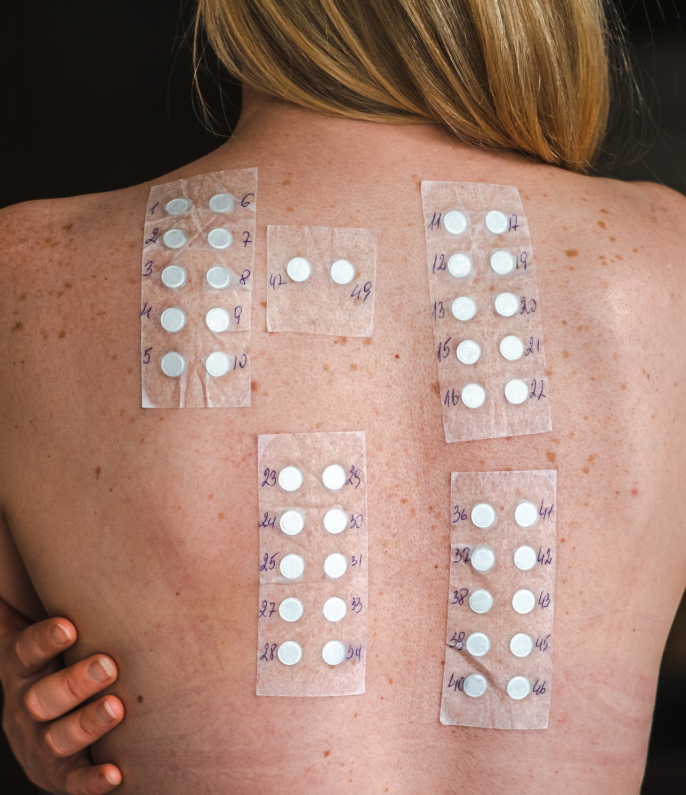
Patch testing is used in the investigation of delayed type allergic reactions that can result in conditions such as allergic contact dermatitis. It is also a test used to diagnose metal allergy which can result in prosthetic joint failure.
It involves applying allergens to the skin, usually on the back, for 48 hours. The patches are then removed and read at a further 48 hours.
Positive reactions produce a patch of dermatitis at the application site, which are often red, itchy and raised, often with vesicles.
During patch testing, small amounts of different substances, called allergens, are applied to patches, which are then placed on your back. These patches are usually left on for 48 hours. Anywhere between 30 to over a hundred allergens can be applied at a time.
The panel positions are marked and are then removed at 48 hours (Day 2) and your skin is examined for any sign of reaction. The skin is further inspected another 48 hours after that (Day 4).
The whole procedure therefore takes a full 4 days to per-form. In some circumstances, additional readings may be done on days 5 or 6.
Patch testing is an expensive process due to the multiple allergens involved, costly specialised tapes and intensive labour involved. For an up-to-date price quote, please call or email our rooms.
Reactions are graded for each allergen on a spectrum as:
Some allergens are coloured and will temporarily stain the skin. The colour can be removed with an alcohol swab. These are not true positive reactions.
Irritant reactions can occur in those with eczema, particularly to metals, perfumes and some rubber accelerators, and are not relevant.
Negative results may mean that the dermatitis is endogenous or irritant in cause.
Detailed information sheets will be given to you highlighting where you may find, and therefore avoid, the identified allergen. It is useful to make a note of identified allergens for checking products when shopping.
Most countries mandate that allergen constituents appear within or on the packaging or several types of products, particularly personal care items. The print can be very small, and cosmetic manufacturer’s websites usually list constituents, are up-to-date, and easier to read.
Positive reactions produce small itchy patches of dermatitis. At the end of the testing and if severe, this can be treated with a topical steroid.
Other adverse reactions include:
It is important to be aware that late patch test reactions are possible. They may occur up to 10 days after testing. Please call our clinic and if possible, email a photo of your back. You may need to return to the clinic for the doctor to review your reactions.
